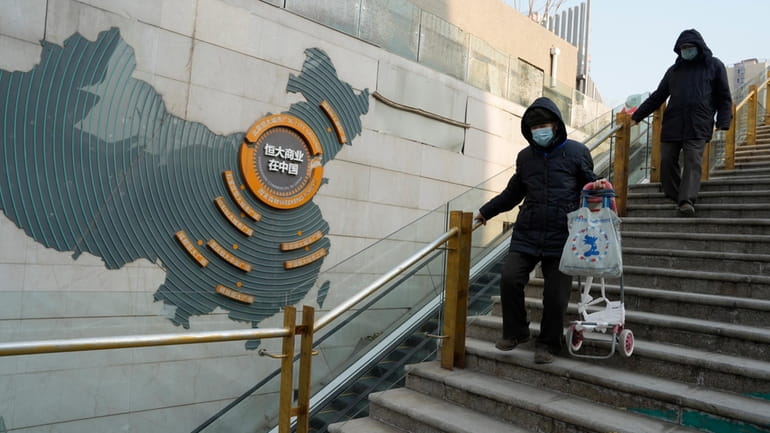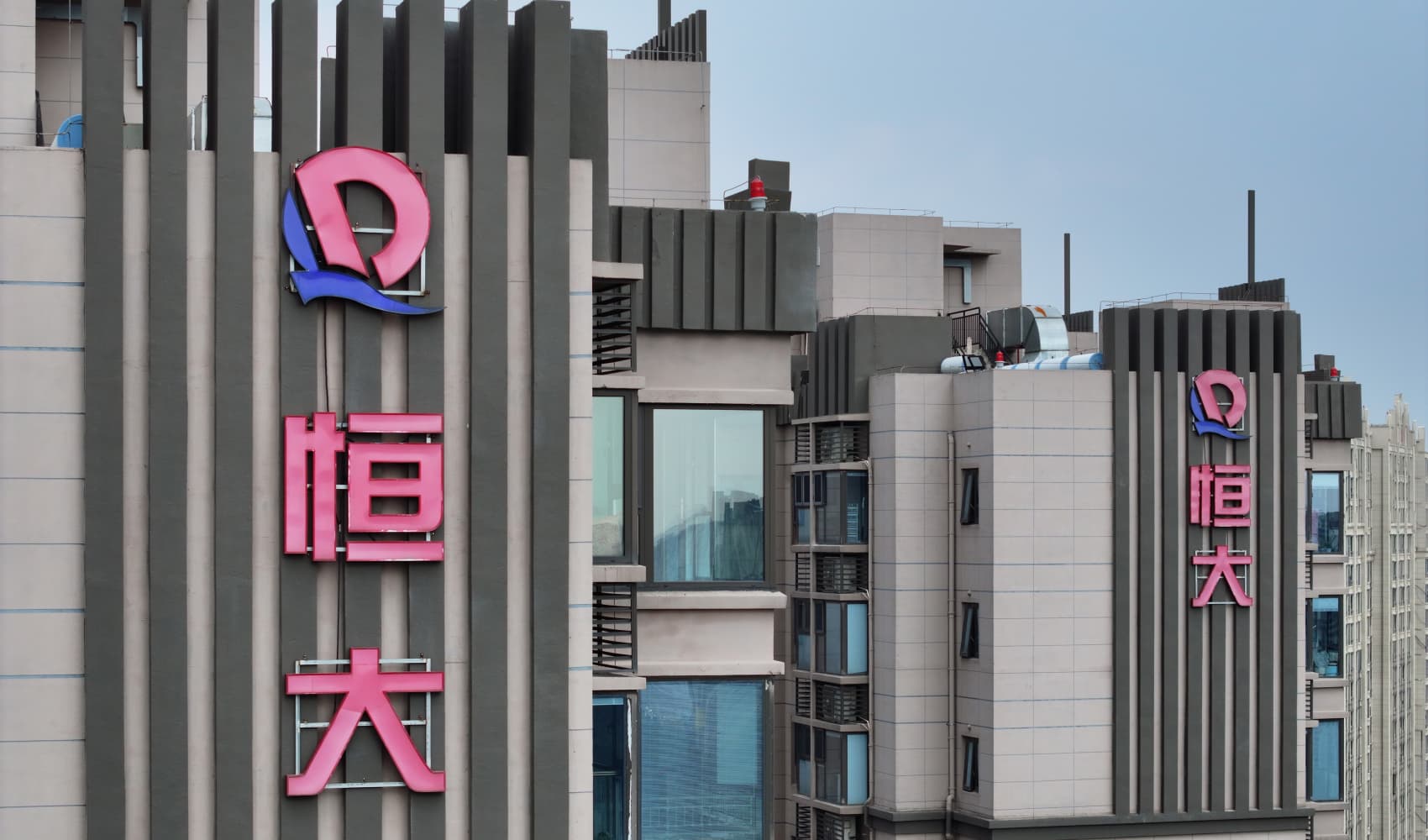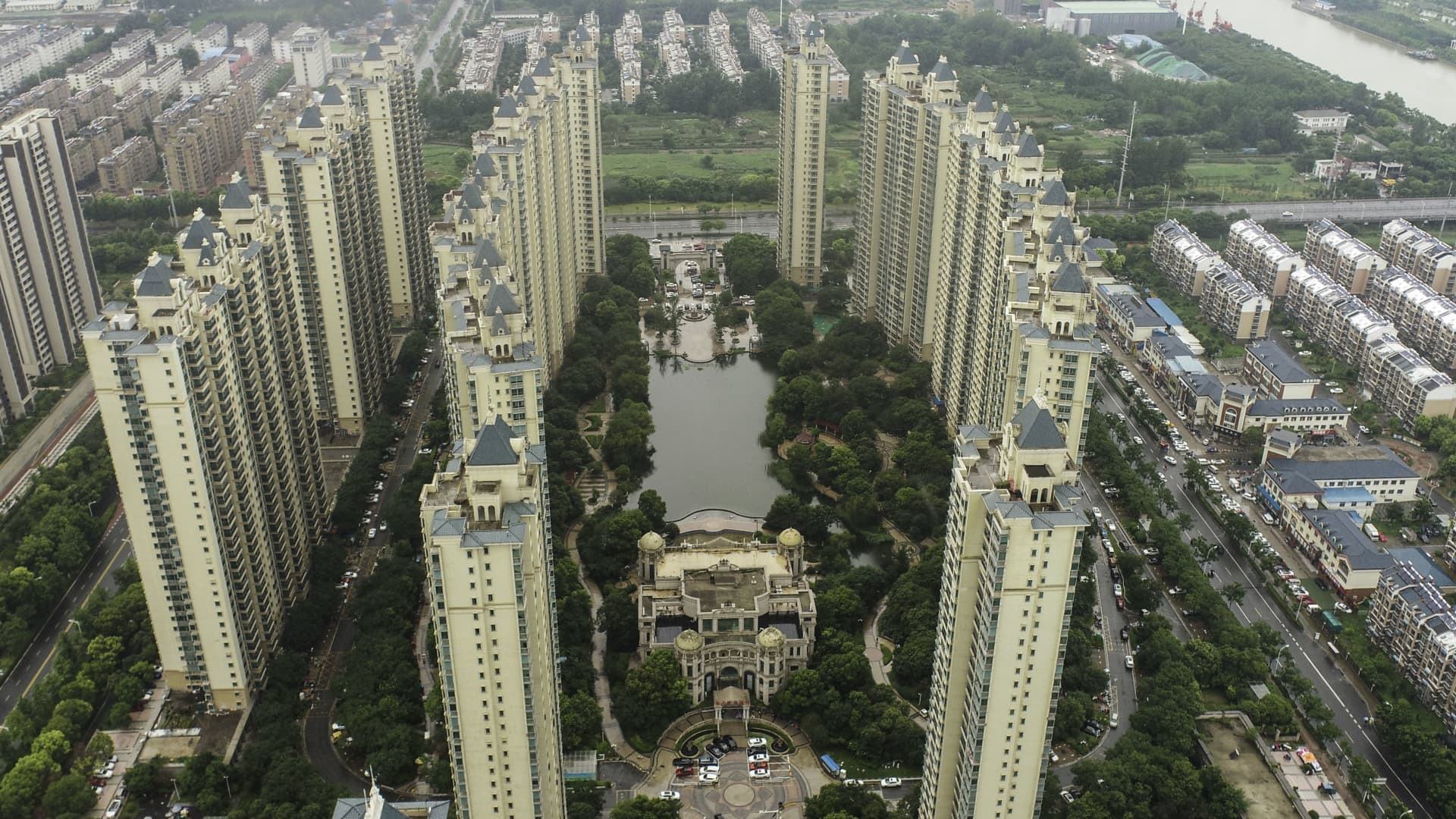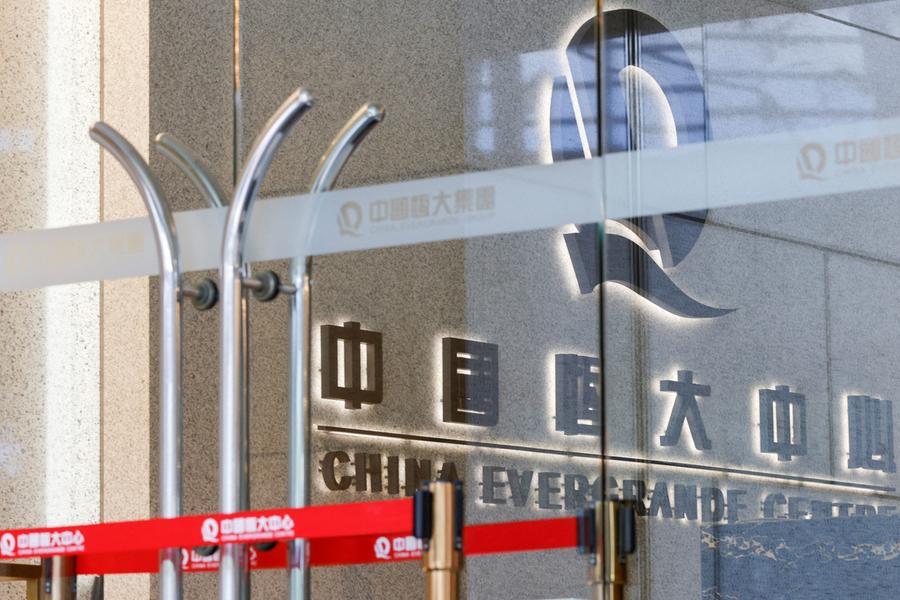Hong Kong Court Orders Evergrande’s Liquidation, Chinese Property Giant Faces Collapse; Why Would The Collapse Of Evergrande Matter?
Evergrande, one of China's leading property developers, has been ordered by a Hong Kong court to wind up its operations after failing to reach a restructuring agreement with creditors. This decision comes amid a broader decline in confidence within the property industry, stemming from developers' struggles to meet commitments amidst tightened borrowing regulations. Evergrande's insolvency is expected to compound the sector's challenges further, highlighting the impact of regulatory crackdowns on excessive borrowing, but why and how does the collapse of Evergrande matter?

The Hong Kong court has ordered the winding up of Evergrande, one of the leading Chinese property developers, marking a significant development amidst the industry’s declining confidence due to developers’ struggles in meeting their commitments following stringent regulations on borrowing.
Evergrande’s insolvency is poised to worsen this downward trend.
China Evergrande Group was compelled by a Hong Kong court on Monday to undergo liquidation following unsuccessful attempts to reach a restructuring agreement with its creditors.
Judge Linda Chan cited Evergrande’s insolvency and the lack of substantial progress in presenting a feasible restructuring proposal as grounds for the court’s decision to wind up the company’s operations.
The property sector’s waning confidence, attributed to developers’ struggles in fulfilling their obligations amid tightened borrowing regulations, is expected to be further impacted by Evergrande’s insolvency.

In December, Evergrande received a temporary reprieve after indicating its efforts to refine a new debt restructuring plan encompassing over $300 billion in liabilities.
Fergus Saurin, representing a group of creditors, expressed little surprise at the verdict on Monday, highlighting Evergrande’s failure to engage with them effectively. He criticized the company for sporadic engagement that led nowhere and asserted that Evergrande bears sole responsibility for its liquidation.
The judge is set to elaborate on the rationale behind the liquidation order during a separate court session later on Monday.
The Downfall
Evergrande, known as the world’s most indebted property developer, is among numerous firms in the sector encountering difficulties following Chinese regulators’ crackdown on excessive borrowing in real estate.
The company’s initial default on financial obligations in 2021 occurred shortly after Beijing implemented measures to curb lending to property developers, aiming to deflate a property bubble.
Hong Kong, as a former British colony, operates under a legal system distinct from but increasingly influenced by mainland China’s communist rule. While mainland courts have occasionally recognized bankruptcy rulings in Hong Kong, analysts view Evergrande’s case as somewhat of a test scenario.
Real estate development has been a driving force behind China’s economic growth, with developers heavily borrowing to transform cities with towering apartment and office complexes.
The surge in borrowing has contributed to China’s total debt, including corporate, government, and household sectors, reaching over 300% of annual economic output, which is notably high for a middle-income nation.
Other major developers, including Country Garden, China’s largest real estate developer, have also encountered financial difficulties, sending shockwaves through both domestic and international financial systems.
Evergrande’s shares listed in Hong Kong plummeted nearly 21% before trading was suspended on Monday, contrasting with a 1% rise in the benchmark Hang Seng index following the court ruling. Shares of other property firms saw gains, with Country Garden rising 2.9% and Sunac China Holdings jumping 4%.
The repercussions of the property crisis have spilled over into China’s shadow banking sector, comprising institutions offering banking-like services outside traditional regulatory frameworks.
Zhongzhi Enterprise Group, heavily involved in lending to developers, declared insolvency amid the turmoil.

The Crises
Evergrande’s liquidity crisis unfolded between August and September 2021 due to new regulations imposing debt limits on Chinese property developers, including Evergrande Group.
Despite once being China’s second-largest property developer, Evergrande found itself burdened with $300 billion in liabilities by 2021, struggling to settle payments to suppliers and complete construction projects.
Its debt default in December 2021 triggered market turmoil and a wave of subsequent defaults, compounded by delays in paying retail investors in its financial products, prompting protests nationwide.
Hence, the ongoing crisis in the Chinese property sector continues to exert significant effects on the country’s economy.
Why Evergrande’s Collapse Is Significant?
Understanding the potential implications of Evergrande’s collapse requires a grasp of its vast reach and influence within China’s economy.
Established in 1996 by businessman Hui Ka Yan in Guangzhou, southern China, Evergrande, initially known as the Hengda Group, has grown into a conglomerate with diverse interests beyond real estate development.
At its core, Evergrande Real Estate boasts ownership of over 1,300 projects spanning more than 280 cities across China. However, the Evergrande Group extends its portfolio far beyond real estate and includes ventures ranging from wealth management to electric vehicle manufacturing and food and beverage production.
It also holds a controlling stake in Guangzhou FC, previously one of China’s largest football teams.
Founder Hui Ka Yan was once Asia’s wealthiest individual, with Forbes estimating his fortune at $42.5 billion. However, as Evergrande encountered mounting challenges, including financial difficulties, Hui’s wealth has significantly diminished.

Bad Decisions
Evergrande’s troubles stem from its ambitious expansion fueled by substantial borrowing, accumulating debts exceeding $300 billion.
Beijing’s implementation of new regulations in 2020 aimed at curbing debt levels among major real estate developers intensified Evergrande’s predicament. In response, the company resorted to offering steep discounts on its properties to maintain cash inflow, exacerbating its financial strain.
The company’s inability to meet interest payments on its debts has plunged its shares into a downward spiral, shedding 99% of their value over the past three years.
Amid mounting uncertainties, Evergrande sought bankruptcy protection in New York in August, seeking to safeguard its U.S. assets while negotiating a multi-billion dollar deal with creditors.
The collapse of Evergrande, given its extensive reach and significant debt burden, could have far-reaching ramifications not only for China’s real estate sector but also for its broader economy and global markets.
Hence, understanding its challenges and potential fallout is crucial for stakeholders worldwide.

Why Would The Collapse Of Evergrande Matter?
The severity of Evergrande’s challenges underscores several significant concerns.
Firstly, numerous individuals have invested in properties offered by Evergrande, often paying deposits well before construction commences. Should the company fold, these buyers risk losing their deposits, posing a substantial financial setback.
Moreover, a wide array of businesses maintain commercial ties with Evergrande, including construction and design firms, as well as suppliers of materials. The collapse of Evergrande could trigger substantial losses for these entities, potentially leading to bankruptcy.
The potential ripple effect on China’s financial system is another critical aspect. If Evergrande were to collapse, banks and other lenders might curtail lending activities, resulting in a credit crunch.
Such a scenario makes it challenging for companies to access affordable financing, hindering growth and potentially forcing some businesses to cease operations.
The notion of Evergrande being “too big to fail” has prompted speculation that Beijing might intervene to rescue the company.
However, some analysts, like Jackson Chan from Bondsupermart, believe that Evergrande has effectively collapsed and is on the brink of forced liquidation.
The collapse of Evergrande could significantly impact China’s economy, given that the property sector contributes around a quarter of its growth.
Some experts fear that China might tread a path similar to Japan’s experience in the 1980s, leading to prolonged economic stagnation.
Despite the grim outlook, there are doubts about whether Evergrande will be permitted to collapse entirely.
Dexter Roberts from the University of Montana’s Mansfield Center suggests that such a scenario could trigger a domino effect, impacting other indebted companies and exacerbating challenges within the broader property sector, which is integral to China’s economic growth.
Additionally, households heavily invested in apartments could face severe financial losses.
The Last Bit, the potential collapse of Evergrande, a major player in China’s real estate sector, holds significant ramifications both domestically and globally.
The prospect of individuals losing deposits, businesses facing substantial losses, and the risk of a credit crunch affecting China’s financial system stresses the severity of the situation.
While there’s speculation about government intervention to prevent Evergrande’s collapse, uncertainties persist regarding its future and the broader implications for China’s economic growth.
Whether Evergrande survives in a diminished state or succumbs to liquidation, the aftermath will likely reshape China’s real estate sector and impact global investor confidence.
Therefore, monitoring developments surrounding Evergrande remains crucial for stakeholders in China’s economy; while the fate of Evergrande remains uncertain, its potential collapse carries significant implications for China’s economy and globally.




